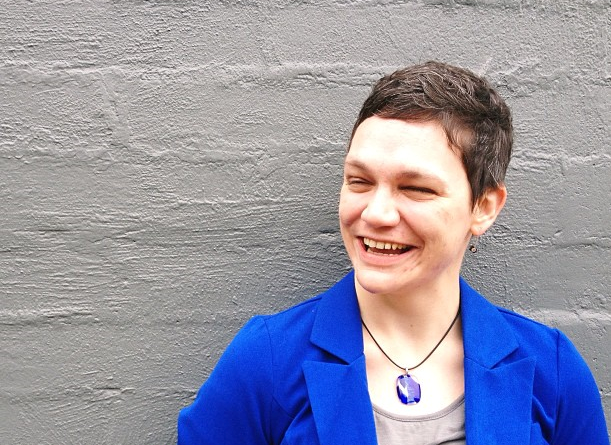Non-violence and Colombia by Lora Burge
Non-violence: it’s often framed around what we are not going to do. We are not going to use firearms or other destructive weapons. We’re not going to use any sort of violence to affect change or promote justice. We’re not going to use physical force in any way upon others, groups, or their property. These are statements of negation or abstention. We are not going to do XYZ thing or strategy because it hurts others in small or large ways. We don’t want to participate in the ways that human community is destroyed, damaged, or killed.
At Presbyterian Peace Fellowship, we do spend a lot of time thinking about what non-violence may mean in today’s context in our particular communities. I also find it helpful sometimes to consider non-violence in a positive or contributory sense: How are we pushing back on the way things are that build up a society or community? Can we say no to systemic violence in creative and often restorative ways that point to an alternative to the status quo?
A few years ago, I spent almost three months in Colombia with the Presbyterian Church of Colombia and the Presbyterian Peace Fellowship. I spent a lot of time with local church leadership, visited social and educational projects, and heard many stories of displacement, violence, and war. I was present for church services, meetings, and lectures. These may seem like small acts of non-violence in the full view of Colombia as a country that endured 5 decades of violent conflict before entering the current peace process.
Yet they aren’t so small. The Presbyterian Church in Colombia has long had an active social justice and peacemaking presence in their country. For this stance, they have received death threats and repeatedly placed themselves in danger defending others. In 2004, they wrote partners in the United States inviting church partners to train as accompaniers and stand alongside them in their work for a more peaceful Colombia. It was thought that this would be a temporary response. 13 years later and accompaniers are still being trained and sent as a non-violent presence. I now have the privilege of recruiting and training those accompaniers. Interaction by interaction, relationship by relationship we are hoping to build something different and support the long-term peacemaking efforts of the Presbyterian Church of Colombia.
I have many memories from Colombia but one still sticks out for me. We (my co-accompanier and I) were sitting in a church family’s home with the local pastor. We had gone for an afternoon visit. Their home was more of a structure built in stages as pieces–plywood, sheet metal, a few beams, tarps–could be found or bought. As we visited, the afternoon rains began. The roof proved effective but after some time I watched the heavy rains begin to pool in under the makeshift walls.
What stuck with me more than the difficult living conditions was the story of how they arrived there: The young woman and mother of the family was speaking. She said that she and her husband and family lived in a rural area not too distant from the larger town they now lived in. One night while she was pregnant with her younger child, some armed men with bandanas covering their faces arrived outside the family’s house and demanded they come out or the house would be lit on fire. They went out to meet them. She watched the men tie up her husband and carry him away. The leader instructed her to take her toddler back inside and go to bed. She didn’t know where her husband was for three days. Then her brother- and father-in-law got a call telling them where they could find her husband’s corpse. After burying him, she fled with her husband’s family. She fled with her son and a backpack. Ultimately she ended up in simple structure she now calls home where we met her. She is a member of the local congregation and active in the women’s group.
This relational non-violence is indeed slow. It’s a long-term project but it’s one that our Colombian colleagues and partners continue to affirm is important and worthwhile. In each meeting, in each tiny cup of tinto coffee shared, in each communion moment we say along with the Presbyterian Church of Colombia to the Colombian people: you matter, we see your struggles and the way you’ve suffered under violence. We are going to non-violently invest in you, your well-being, and a lasting peace in your country. And we’ll be here until peace isn’t just a dream.
Rev. Lora Burge is an ordained minister in the PC(USA) and a graduate of McCormick Theological Seminary (2013) in Chicago and Whitworth University (2006). Before accepting the role of Colombia Accompaniment Coordinator, Lora served as an accompanier in Colombia for few months in 2013. She began learning about accompaniment and peacemaking during her time as a PC(USA) Young Adult Volunteer in Guatemala. Lora also works as a hospital chaplain in Chicago though will always claim Whidbey Island, Washington as home. She lives with her cats on the north side of Chicago, enjoys running by the lake, and tries to be creative in her spare time.

